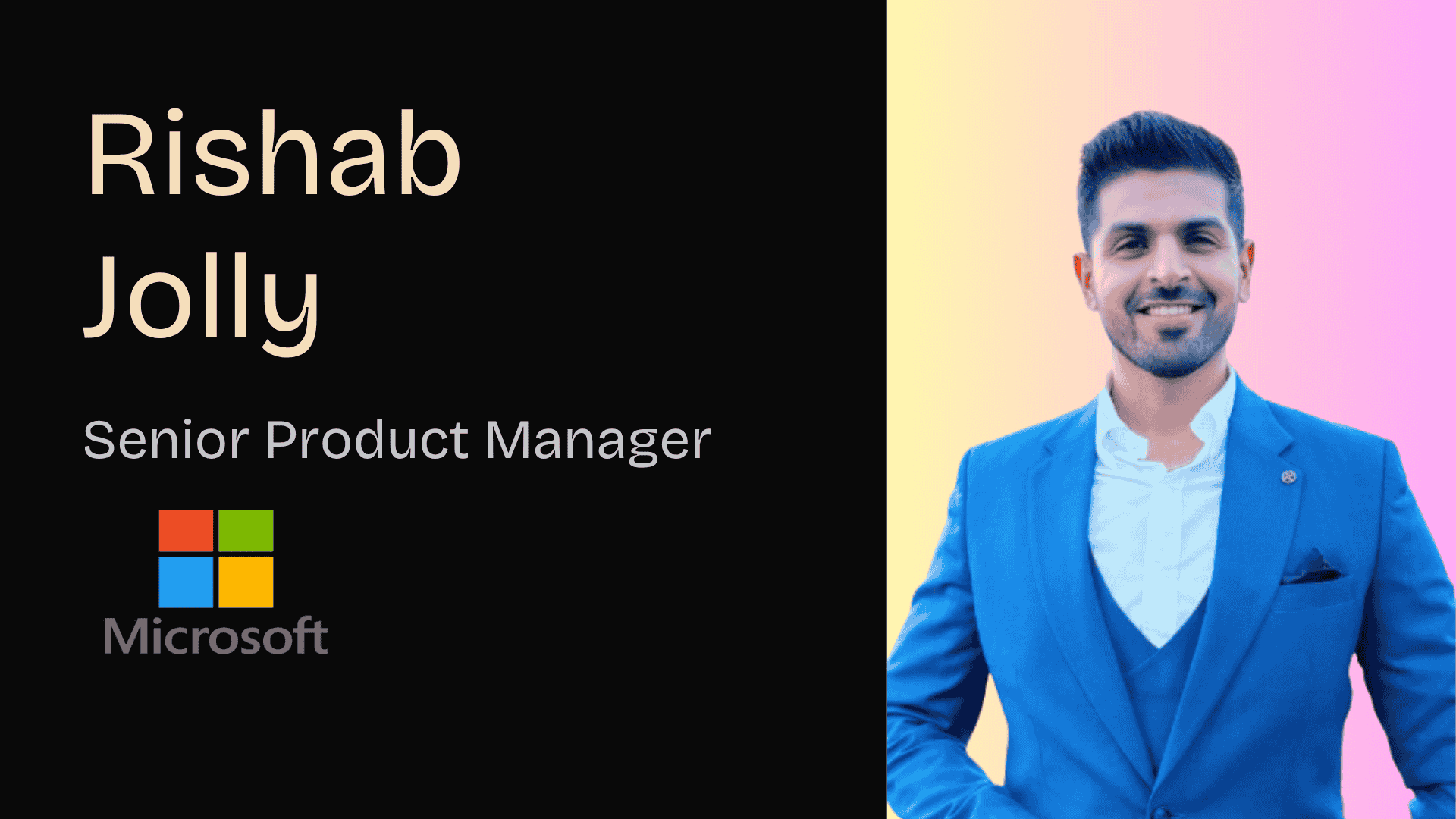How to think fast and grow as better product managers using Mental Models - AMA with Ankur
Alright! Continuing with our series of blogs where we cover the AMAs we hold over on our Slack channel. In case you missed it we regularly host Product Managers and talk about everything #product.
We are excited to have hosted Ankur Sharma, Vice President of Product and Engineering, Perkbox as our guest. He shared his learnings and knowledge around - How to think fast and grow as a Product Manager using Mental Models.

Here are some key takeaways:
What are some good resources on mental models?
Following are my favourite ones:
- Decisive: How to Make Better Choices in Life and Work By Chip & Dan Heath
- How to Make Sense of Any Mess: Information Architecture for Everybody By Abby Covert
- Wiser: Getting Beyond Groupthink to Make Groups Smarter By Cass Sunstein & Reid Hastie
- The Surprising Power of Liberating Structures: Simple Rules to Unleash A Culture of Innovation By Henri Lipmanowicz & Keith McCandless
- The Art of Living By Epictetus
- The Paradox of Choice: Why More is Less By Barry Schwartz
- Streetlights and Shadows: Searching for the Keys to Adaptive Decision Making By Gary Klein
- Nudge: Improving Decisions about Health, Wealth and Happiness By Richard H. Thaler & Cass R. Sunstein
- The Man Who Mistook His Wife for a Hat: and Other Clinical Tales By Oliver Sacks
- Antifragile: Things That Gain from Disorder By Nassim Nicholas Taleb
- Poor Charlie’s Almanack: The Wit and Wisdom of Charles T. Munger By Peter D. Kaufman & Charlie T. Munger
- The Brain That Changes Itself: Stories of Personal Triumph from the Frontiers of Brain Science By Norman Doidge
What are some key mental models you follow on day to day basis?
I use the below mental models to remove the cognitive load on a daily basis:
- 5 minute Rule: If something takes 5 minutes, don’t procrastinate it, do it right away
- Invert, always invert: Often by considering what we want to avoid rather than what we want to get, we come up with better solutions
- Hanlon’s Razor: Hanlon’s Razor states that we should not attribute to malice that which is more easily explained by stupidity
- Occam’s Razor: If all else is equal, it’s more likely that the simple solution suffices.
What are the Frameworks that you are using today (actionable/tactical)?
The frameworks I use, changes on a Day on Day basis. However, one thing which I always try to optimise is Decision making. I on a daily basis use mental models, which alleviate the cognitive load of decision making, like mentioned in the above answer.
What are the Ecosystem differences and your learnings in the past year?
In the past year, I believe the biggest shift came from the new Mental Model which I developed after I moved from Bangalore to London. I realised how East is a low trust society vs West which is a high trust society and I need to optimise my decision making and way of working for develop higher level of trust and transparency at scale, which you could live with in East.
Can you illustrate with a problem use case and how you used mental model to solve the problem?
My Favourite one as a problem use case to cite is "Build vs Buy". As PMs, we always face this conundrum. My Mental Model on Build vs Buy has evolved over the period of time. Now what I look for is that if, "Buy" is allowing me to have:
- more freedom to focus on my core product
- faster time to market, and
- production-ready solutions for complex and scalable engineering operations.
Then I should buy. And it practically only applies to the non-core business
There could be other things to consider also, like costs, expertise, resourcing but at the end of the day this mental model helps answer major question which is can i focus on my core product, my GTM is faster and solution is not rigid and rather prod ready and scalable.
What are the best & free tool to make mental models ?
Writing! I use writing not as a communication medium but as a thinking medium. I write all the time.
I use an exercise called Morning Pages (has arrived from a book called The Artist's Way) which helps me think clearer over the day
I use Island and Bridges writing strategy to make sure I think more from the first principles than tactically to start with.
How to break the mental block(hardwiring) that one has gained over the years , to think afresh and fast?
The best technique which I have deployed to remove the mental block is to force myself to speak slowly. When that happens, I have more time to think and that in turns trigger the conscious to not jump on the first thought which comes to my mind
Secondly, over the period of time, I have learnt how to ask effective questions which buys me more time to think. Mental Models to ask Effective questions are:
- 5 Whys is a great mental model on asking effective questions.
- Question the Dogma.
- Sow doubt and Test
What are the ways to understand their user mental model for a PM?
- Observe users using your or competition product.
- Live their lives (Can they only access your product via their 3 year old MI phone with only 3G - try doing that for 1 month)
What do you think most young PMs do wrong early in their careers?
If I have to take cue from my career (and I have done enough mistakes), I will say, they should learn:
- How to ask effective questions faster
- How to take decisions with insufficient information
- How to own the whole value chain
- How to write and write more often for thinking (not communicating)
- To find a mentor
How do one manage the problem of 'Context switching'?
I use my context switching problem by following 5 minute rule - If something takes 5 minutes, don’t procrastinate it, do it right away. This takes care of 90% of context switching over the day. For rest 10%, make sure you write what's on your mind.
How one should take priority decision in product? Any framework from that you use?
I use decision matrix to drive decisions. I separate decisions into four possibilities based on the type of decision I make:
- Irreversible and inconsequential
- Irreversible and consequential
- Reversible and inconsequential
- Reversible and consequential
I delegate all the inconsequential decisions (be it reversible or irreversible).
Consequential and irreversible decisions are the ones that I really need to focus on.
The key to understand decision making is that perhaps only 3-5% of your decisions will ever be irreversible.
For someone who is working as a Product Owner in a purely Enterprise Banking space, how/what mental model or approach you suggest to break into B2B SaaS or B2C PM? Any play book or actionable plan would be awesome as well.
It all depends on how desperate you are to break into SaaS or B2C :)
If you already know how to think about the products from first principles, then here what I will suggest:
- Find startups which have a hockey stick growth
- Write to their CEO/CPO/CXO on LinkedIn with a Case Study on how have you done a tear down of their products and what you believe can be added in the future roadmap, because you have spoken to customers
- If you get an appreciative response, ask for a 30 minutes call. Don't ask for a job.
- Ask for a job in the call.
One of the things we struggle with personally is, how do you decide which mental model/s to use for making a particular decision?
This takes time to bed into the head. Initially it is like learning a new language. As I said before in one of the other question, I learnt to do it by teaching myself to speak slowly, which helps me going through the rolodex of mental models in my mind. As time goes by, it starts coming back to you associatively. One thing helped me a lot was doing this course. The instructor also has a book with the same name, if you don't like MOOCs (edited)
What are the best way to validate the mental model applied to a problem?
Initially. it is going to be a lot of hit and trial. They key is to live through the process and reflect on the mental model applied and decisions taken.
How can a PM transition into PM leadership role? What are some key attributes and what practices should one follow to attain them?
- Learn to solve for patterns and not only for problems.
- Learn how to pre-empt dead-locks by using the superficially different but structurally similar situations which you would have seen before in your and other professional and personal lives.
- Trust people, Be paranoid of Situations.
FIN
Want to join the next conversation? We’ll be having another Product Chat soon, get your invite to our Slack community to get all the details. See you inside.
.gif)





.avif)
.avif)

.avif)
.avif)
.avif)

